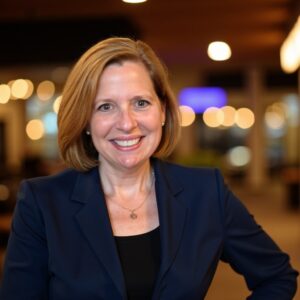Beth Jonas, MD, FACR, has contemplated rheumatology workforce solutions for many years. Having played a role in the formation of the ACR’s Workforce Solutions Committee a few years ago, she was well positioned to become the next chair. Dr. Jonas has been a long-time active member of the ACR and is the Reeves Foundation Distinguished Professor of Medicine and division chief, Rheumatology, Allergy & Immunology, at the UNC School of Medicine in Chapel Hill, N.C.

Dr. Jonas
Here, Dr. Jonas shares some of her background and future plans for the committee with The Rheumatologist.
The Rheumatologist (TR): How did you end up becoming chair of the Workforce Solutions Committee?
Dr. Jonas: I’ve been pretty involved in workforce for many years. From 2018 to 2021, I chaired the Committee on Training and Workforce (now called the Committee on Training). That committee had always focused more on training than workforce. I felt that we were not doing a very good job of addressing the workforce challenges outlined in the 2015 ACR Workforce Study. I asked then-ACR President David Karp, MD, PhD, to help us come up with a structure that would facilitate a bolder and more innovative approach to the workforce challenges.
The Executive Committee approved a workgroup under the leadership of Daniel Battafarano, DO, MACP, MACR, which ultimately became the Workforce Solutions Committee. I was involved in the initial discussions around what that committee might look like and then became an active member of the committee, leading the initiatives on fellowship training support.
As Dr. Battafarano was about to rotate off, I felt that I was uniquely positioned to take on the role of chair, and here I am.
TR: What are some of your plans and goals for the committee?
Dr. Jonas: The committee has done a tremendous amount of work over the last few years to think about the best ways to grow our workforce and increase the impact of the work that we do. We’ve done a lot to help fellowship programs open and grow, bring resources that primary care providers need to provide care to the patients in their community, and to get more advanced practice providers (APPs), like NPs and PAs, trained to become practitioners in rheumatology.
We’re now establishing a series of long-range goals centered around increasing the number of APPs who are seeing patients in rheumatology practices. Another goal is to decrease the amount of time that it takes to get somebody who needs specialty care into a rheumatology practice. This is a huge problem across the country. It’s true in my community and across the country that if somebody needs to see a rheumatologist, they’re waiting weeks, months and sometimes even longer than that.


